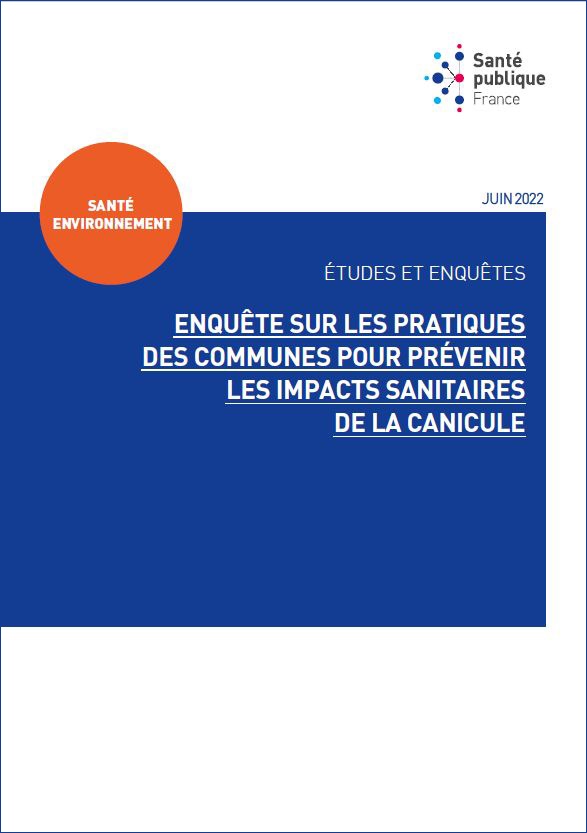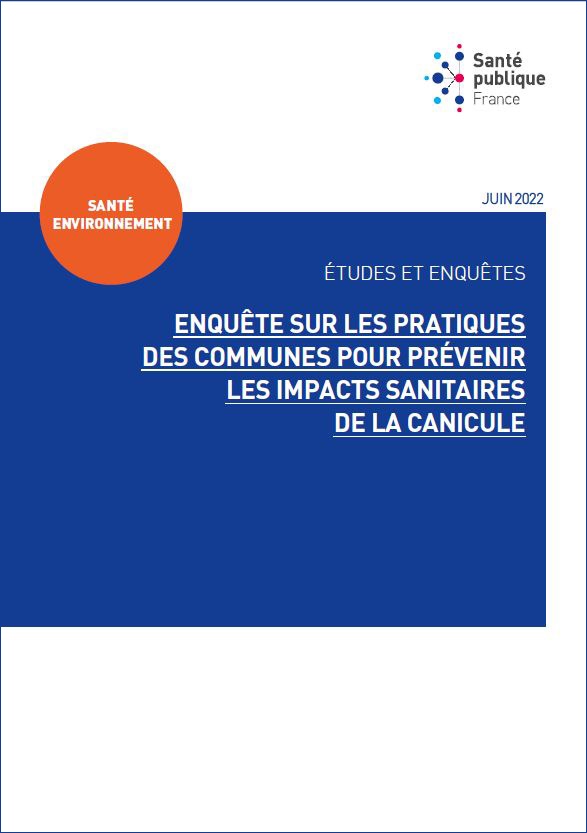
Within the framework of the interministerial heat wave instruction, the prevention of the health effects of heat waves relies mainly on local actors, in particular municipalities. Public Health France therefore wished to draw up an overview of their practices concerning heat adaptation measures in the city and heat prevention for schoolchildren, homeless people and vulnerable people (via municipal registers of elderly/disabled people volunteers for warning and protection purposes). The objective was also to assess the perception of risks and the difficulties of the municipalities. Four online questionnaires were offered in 2019 to all 34,839 municipalities in metropolitan France. The town halls were solicited via an email addressed to the mayors and to certain dedicated services in connection with the themes of the questionnaires. A few hundred municipalities responded to all the items in each questionnaire. Concerning the registers of vulnerable people, the services involved are often the municipal social action centers or dedicated municipal services. Registration is based on criteria of age (most often 60 or 65 years old minimum), disability, isolation, etc. During heat waves, registered persons are contacted and receive advice, visits, help, sometimes moving to a cool place… The town halls consider that the registers allow socio-sanitary monitoring, the provision of advice or assistance, but do not target the most vulnerable and lack the means. In schools, some of the municipalities have carried out structural or circumstantial improvements (vegetation of the courtyard, insulation, blinds, etc.), and a majority have information procedures on the risks associated with heat and the means of protect the children (give them water, put them in the shade, etc.). For the homeless, temporary accommodation measures in the summer or the provision of a map of water points are infrequent, while support measures such as marauding are more present, in connection with associations or the Samu social. Finally, measures to adapt to heat in the city range from one-off measures in summer (identification and provision of cool places, watering of green spaces, foggers, etc.) to urban development measures (vegetation, coverings absorbs little heat…). The results of this survey make it possible to identify courses of action to improve the protection of the population against heat waves at the municipal level. It would therefore be relevant to carry out an assessment and feedback on the relevance and operationality of municipal registers, to assess the opportunity of their evolution or reorientation towards other mechanisms and to improve targeting and assistance to vulnerable people. It also seems important to better train and coordinate actors in the field working with vulnerable people, schoolchildren or the homeless. For the latter, access to water and hygiene should be reinforced. At school, the improvement of facilities against heat must continue. Finally, it is important to reduce urban heat, in particular via the concept of nature in the city, the co-benefits of which go beyond the framework of the heat wave.
Author : Laaidi Karine, Gane Jessica, Saoudi Abessatar, Zeghnoun Abdelkrim, Le Tertre Alain
Year of publication: 2022
Pages: 70 p.
Collection : Studies and surveys













